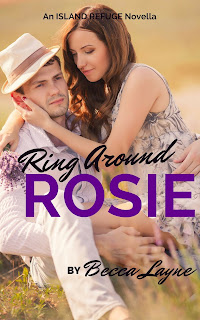#WWoW! To Do Or Not To Do (when Writing Romance) #Thursday13
Writing is a personal process. While a good editor will tell us that there are firm rules on grammar,
we still like to believe there are no rules in the actual storytelling. Our stories come from our imagination, and therefor can be whatever we dream. I'm not so sure about that. There are just some time tested elements that work and don't work when writing romance. Some I discovered on my own -trial and error- and some I received as advice from other authors. Regardless, I made a list.
"RULES" when writing a good romance. I admit to being a person who likes rules, but I'm also a writer who takes chances and has broken a few of her own rules on occasion. ;)
we still like to believe there are no rules in the actual storytelling. Our stories come from our imagination, and therefor can be whatever we dream. I'm not so sure about that. There are just some time tested elements that work and don't work when writing romance. Some I discovered on my own -trial and error- and some I received as advice from other authors. Regardless, I made a list.
- Borrow from the best. Other great writers have paved a path with classic couples to call upon. No, I'm not talking Edward and Bella here! Go back further. Think about Elizabeth and Darcy from 'Pride and Prejudice' or Beatrice and Benedic from ‘Much Ado About Nothing’. Consider what makes their story so compelling and how you can model your own characters and situation after them. There are common threads, similar obstacles and solutions, that can be adapted to modern day.
- Make it your own. While you can use the classic couples as models, everything else about your story should be your own, Write the story only you can write. Make it your own and make it personal so it resonates with readers.
- Use personal experiences. It can be small things - a quirk, an event, a hobby - that you integrate into your characters. It can be a place you lived or vacationed as your setting. Using your own experiences creates a believable story for readers.
- Don’t write the unbelievable. Be careful that your characters aren't too good to be true. Readers want to identify with the characters. If your heroine is too beautiful or your hero too virile, your story loses the element of reality. Real people have flaws, and they want to read about characters that have a few too.
- Commit to your story. Once you determine what your story's theme will be, follow through. Take each component to its fullest without apology. Readers know when you water it down.
- Don’t fear conflict. Without conflict, there is no story. (Think back on those classics again.) In a romance, there needs to be an obstacle, either internal or external, to the main characters’ relationship.
- Be consistent. Whether writing sweet or erotic romance, maintain the style throughout. Keep your tone and the degree of explicitness appropriate. Match your characters' behavior and reactions to the tone you've set.
- Don’t be cliche! Cliches don't hold the emotion that should be conveyed in a romance. They can appear trite and disconnected. Rather than falling on a cliche, consider using an association the characters share. Stay away from generalities.
- Get emotional. A writer's job is to convey the characters' emotions through the story. Don't tell readers what your characters are doing. Concentrate on showing how they do it and why they do it. That's where the emotion comes out, and that's also how readers connect with your characters.
- Don’t use sex as a crutch. The level of sex scenes in a story is based on the type of romance you're writing. Unless you are writing erotica, you should keep a balance between the sex and the love. Here's an instance where there is such a thing as too much sex! Sex in a romance book is meant to enhance the relationship.
- Build suspense. Readers will keep turning pages if they are committed to the story and want to know what comes next. Design a path for your characters that includes a few obstacles difficult for them to overcome and leave your readers in suspense as to the outcome. Don't give everything away in the first few chapters.
- Don’t neglect research. Your novel may not need research if you stick to purely experience, but if it does, be thorough. Know the details of what you are writing about. Readers who have knowledge on your topic will call you out on not being accurate. (This is one of my biggest fears as a writer!)
- Reward your readers. Readers read romance books for the escape. While this doesn’t mean a romance can't have sad elements, a happily ever after ending is the norm. After investing in the story, readers expect an emotional payoff at the end. If you don't deliver and readers complain, don't be surprised.



Comments
Post a Comment